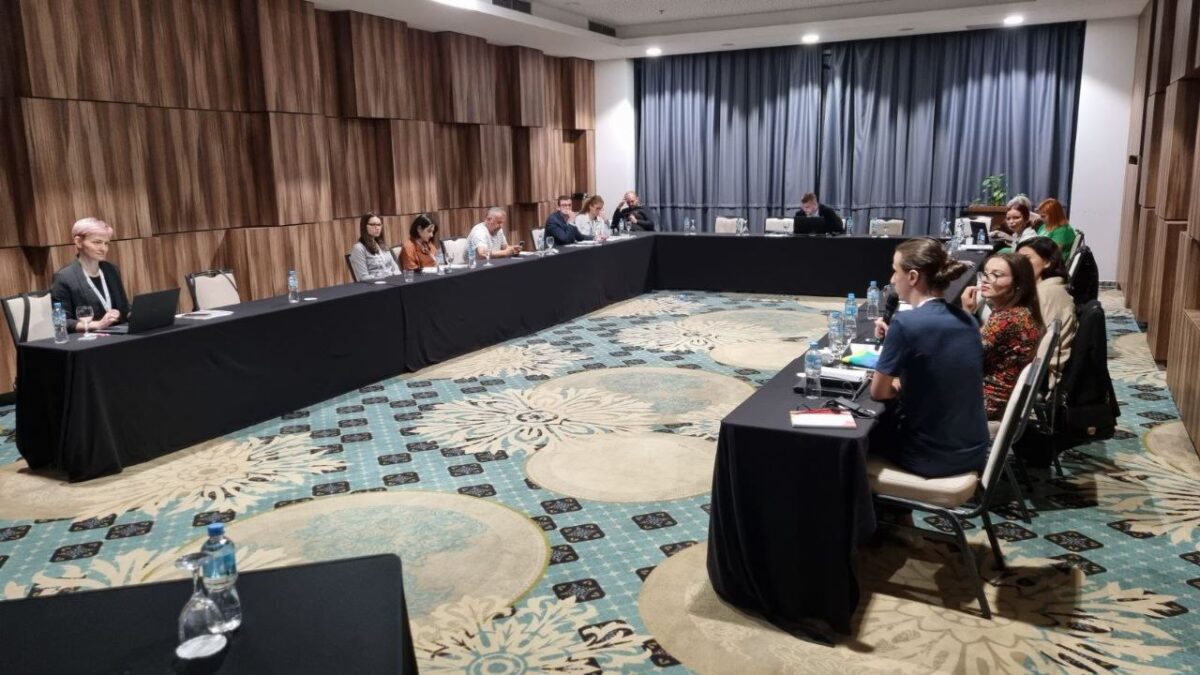On September 16, a meeting was held in Sarajevo (Bosnia and Herzegovina), which was attended by paralegals, lawyers, REAct coordinators and employees who are involved in the project.
South-Eastern Europe Regional TB and HIV Community Network (SEE RCN) is the main implementing partner , which works in partnership with 5 other nongovernmental organizations in Albania, Bosnia and Herzegovina, Montenegro, North Macedonia and Serbia to provide a wide range of services to key populations, including legal services and services for women.
The main goal of the meeting was, to discuss the work, that was already done, to identify strengths and weaknesses and to develop plans for the implementation of the project in the near future.
As a result of the discussion, it turned out that the most common violation of human rights is the denial of medical services.
This point is especially acute in Montenegro, since the country is in a transition to a new healthcare system (there are interruptions in ARVT and TSO, which are still being addressed by NGOs, but more cases are expected).
The problem of discrimination against LGBTIQ people is very tense in Serbia, at the state level, and the problem of disclosing the status of SW is also relevant in the press.
In Albania the main problem is also the attitude of society towards the LGBTIQ community.
And the most of the perpetrators are employed in the healthcare or individuals.
During the discussion of the work of the base itself, decisions were made on the possibility of making cases in the mother tongue of the reactor, which will greatly simplify the work, since at the moment the coordinators and mentors make cases, translating them into English.
Were corrected some errors in the case filling.
And the DHIS2 mobile application was also tested.
The meeting was attended by a REAct coordinator from the Republic of Moldova, where the project is led by “Positive Initiative”. They introduced a multi-level approach of working with cases. From detection of violations, through screening in an electronic monitoring system, to documentation and response.

“Since 2017, the Electronic Monitoring System has been operating in Moldova, which is software for collecting and processing data on goods and services provided within harm reduction and HIV prevention projects. More than 30 thousand beneficiaries are registered in the system. Thus, the screening of violation of human rights is a simple but working tool for their detection. It is held regularly, once every 6 months for each beneficiary who enters the service. In the event that the client claims that he has experienced discrimination and / or violation of rights over the past 6 months, he is redirected to the organization’s reactor” – says Fomina Tatiana, React Coordinator in Moldova.
At the end of the meeting, all representatives of organizations representing REAct in the Balkan region, developed a plan for the dissemination of information materials about the REAct project (business cards and posters). Have been identified key institutions and organizations through which this can be done.
These are organizations partners, friendly medical centers, places of concentration of key groups, distribution of business cards together with handouts.Posters in public institutions such as the police, clinics and NGOs.
Also read:
Nothing Personal, Just Prejudice: Case Study from North Macedonia
Do not hesitate to contact REActors in Montenegro!
Do not hesitate to contact REActors in Bosnia and Herzegovina!


